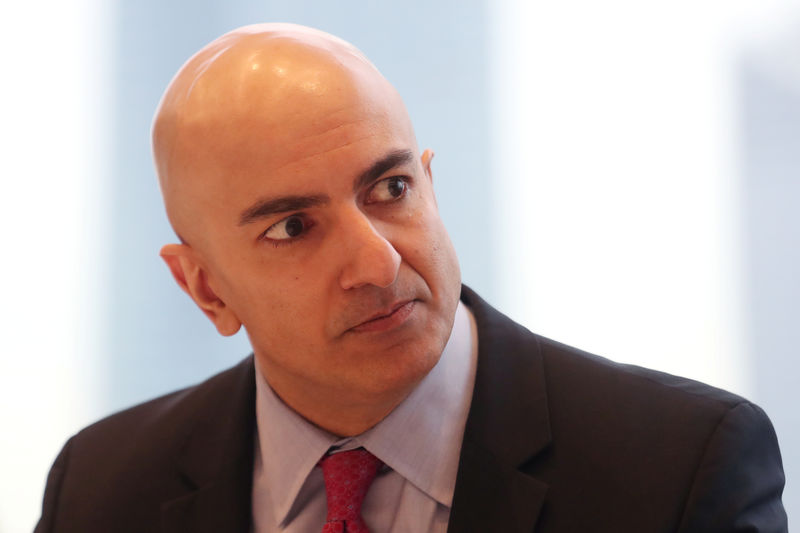SANTA BARBARA, Calif. (Reuters) - Low U.S. inflation expectations are sapping the Federal Reserve's ability to respond to a future downturn, Minneapolis Fed President Neel Kashkari said Thursday, calling for the Fed to allow inflation to rise above 2% to bring the economy back to full strength.
"In my view, we have not implemented our current framework as it was designed to be implemented," Kashkari said in remarks prepared for delivery to the Santa Barbara County Economic Summit, referring to the Fed's 2% inflation target. "For our current framework to be effective and credible, we must walk the walk and actually allow inflation to climb modestly above 2 percent in order to demonstrate that we are serious about symmetry."
The Fed earlier this month unanimously voted to keep its target range for short-term interest rates at 2.25% to 2.5%, and has signaled through economic forecasts that it may keep rates on hold through the end of the year.
Traders of short-term interest-rate futures, by contrast, are betting the Fed will need to cut rates later this year to combat an economic slowdown.
Kashkari has consistently been among the most dovish of U.S. central bankers, and opposed the Fed's rate hikes from 2015 to 2018, which took place even as the unemployment rate sank but inflation only briefly reached 2%. Unemployment is currently at 3.6%, and inflation is by the Fed's preferred gauge running below the target.
In his prepared remarks, Kashkari stopped short of calling for a rate cut, instead casting his comments in the context of the Fed's current effort to figure out if a different policy framework could deliver better results for the economy and for inflation.
"Raising rates while inflation was low is an example of a shortcoming of how we implemented our framework rather than a shortcoming of the framework itself," Kashkari said, saying he was skeptical if a different framework, such as a price-level target, could work better. "We must consider how our existing framework could have performed if we had utilized its full potential to support the economy."
Despite slashing interest rates to near zero in 2008 and buying trillions of dollars of bonds, the Fed's policy was too tight during the depths of the crisis and the first years of the recovery, he said.
When the Fed began raising rates in 2015, he said, it did based on "faulty" signals from the unemployment rate, which Fed officials mistakenly believed would send inflation rising faster and more strongly than it actually did.

Kashkari does not have a vote this year on monetary policy but takes part in the Fed's regular policy-setting meetings in Washington.